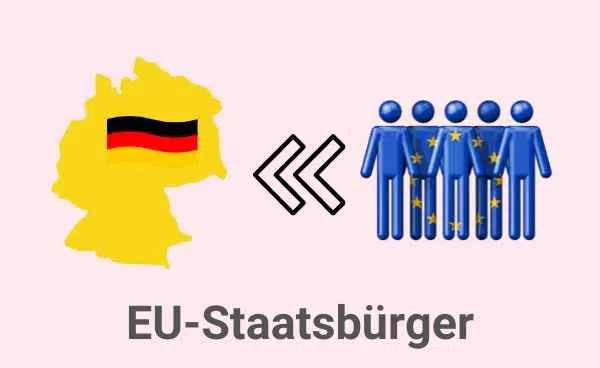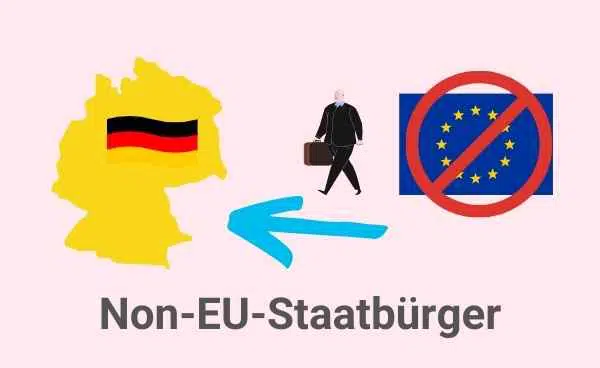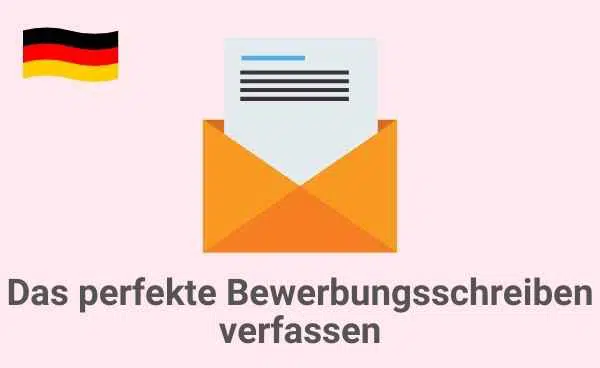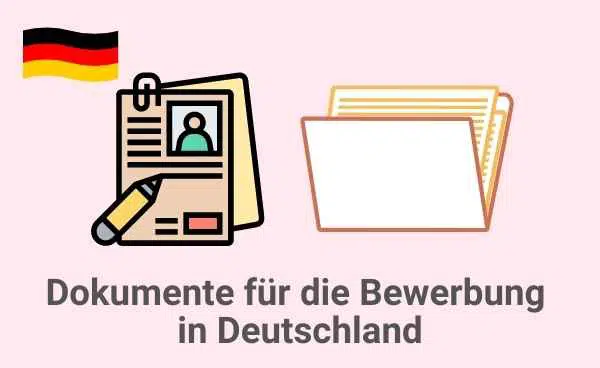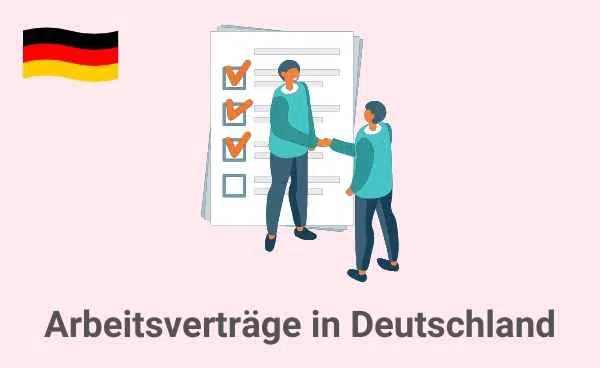Before I moved here with my family more than ten years ago, my first action was to find out how to get a job in Germany. From my own experience, having a job makes life a lot easier in Germany.
I hope to answer most of your questions about getting a job in Germany. Since I arrived in Germany, finding a job and applying for it have changed.
This article is a comprehensive guideline on how to get a job in Germany today. You should easily find your new job in Germany by following all the essential steps.
Key takeaways
- For your resume, you need a professional photo.
- There are many job portals in Germany. Find out which ones are the best.
- To apply in Germany, you need a special kind of resume.
- And a typical German cover letter.
- You need to know how to get your foreign degree recognized in Germany.
- And make sure that you translate your documents legally.
- Salaries in Germany depend on the industry, the region and the size of the company.
- For certain jobs, you need to speak German well or very well.
In this article:
Job in Germany for EU citizens >>
Job in Germany as a non-EU citizen >>
Most demanded jobs in Germany >>
Best job portals in Germany >>
Writing a perfect German CV >>
Professional German CV photo >>
Perfect German cover letter >>
Documents for job application >>
Foreign degree recognition in Germany >>
Get recommendation letters >>
Types of work contracts >>
The best salary in Germany for you >>
Prepare for the interview >>
Learn business German >>
About real life in Germany >>
Get a job in Germany now >>
How to get a job in Germany for EU citizens?
As you might be aware from my previous articles, EU, EEA, and Swiss citizens can live and work in Germany without any restrictions. Still, of course, they have to get a registration with the local authorities.
Those who come from the EU do not need a valid visa to work. This is because there is freedom of movement within the EU. In addition to that, if you are holding an EU long-term residence permit from another EU country, you can also live and work in Germany after registration.
As an EU citizen, you are able to search and apply for a job at any time in Germany. Or you can do it from your home country. Read more about how to register in Germany in my article about registration in Germany.
How to get a job in Germany as a non-EU citizen?
For non-EU citizens, you are always allowed to search for a job from your home country. Citizens of some countries, like the United States, are allowed to enter the country to apply for a temporary residence permit afterward.
That allows you to stay in Germany for up to six months, sometimes even up to twelve months in Germany, if you apply for an extension. Those temporary residence permits are granted for various reasons, whether studying, searching for a job, or joining your spouse.
If you plan to work in Germany, the permission to live and work in Germany will be more accessible if you already have a job offer from a company.
Do you want to learn more about making sure that you are eligible to work as a foreigner in Germany? Then consider reading my article about:
Working in Germany as a foreigner from a non-EU country
Most demanded jobs in Germany
The following main professional groups were the most demanded ones in Germany in February 2022, according to a statistic from Bundesarbeitsagentur. On this page, you can always find the most demanded jobs updated every month.
- Transport, logistics (except vehicle driving)
- Sales occupations
- Medical health professions
- Metal production, processing, metal construction
- Mechanical and automotive engineering occupations
- Mechatronics, energy, and electrical professions
- Driving vehicle and transport equipment
- Business management, organization
- Education and social professions
- Non-medical health professions, Personal care, medical technology
If you’d like to get to know more about how to find out which jobs are currently demanded in Germany read my detailed article:
Most Demanded Jobs In Germany – Examples with Salaries
Search on the best job portals in Germany
An excellent way to start your job search is to search for the best job portals in Germany. There are quite a few in Germany that you could consider searching through. I planned to separate all job search engines based on blue or white-collar focus. All platforms still offer both types of positions.
Blue-collar job portal in Germany
White-collar job portal in Germany
Job portals suitable for trainees and young professionals
Professional platforms with an additional job offers
You can find a more detailed description of those and additional job platforms in my detailed article about:
Get a job in Germany by writing a perfect German CV
One of the essential steps to get a job in Germany is to write a perfect German CV. A resume or CV in Germany needs to meet a few requirements like your first and last name, date of birth, nationality, marital status, contact information, a passport size photo, your private contact information, alongside a short description of yourself.
You should also mention your education, work experience, and other achievements or skills. If your German knowledge is sufficient, consider writing it in German unless specified differently within the job listing.
To get to know more about writing a perfect German CV, I’ve put together more information for you in my follow-up article on how to write a German CV.
I do not recommend ensuring that the CV is no longer than two pages regarding the length.
Get a professional German CV photo
As already mentioned, a professional photo is still highly appreciated by German employers. While this no longer is mandatory in other countries like in the US in Germany, a resume with a professional photo still leaves an impression on the employer.
No law requires you to submit a picture with your CV. In 2007, an anti-discrimination law was established that allowed companies to reject an applicant no longer because they did not submit their curriculum vitae with a photo.
Despite that law still, about 80% of HR people in Germany expect a photo to be there. To help you leave the best impression possible, I wrote an article about a German CV photo.
Write the perfect German cover letter
In addition to your resume, it’s recommended to write a German cover letter as well. The most important advice I can give you here is that the cover letter should complement your CV and not repeat the content of your CV.
Try to keep your cover letter as short as possible. If you talked to someone before your application, thank them for the time and state a short reason why you are applying for that job in specific.
Find my detailed article about the best practices for writing a German cover letter in Germany.
Prepare and translate your documents for job application in Germany
When it comes to supporting documents for your application in Germany, you should prepare a couple of documents and get those legally translated into German. It is essential to translate school or university-related certificates.
Also, if you have any recommendations letters, documents for any internships you had, or some voluntary work you are doing, I recommend you get those translated.
Since more documents are essential for a job application in Germany, please all details in my article about documents for your job application in Germany.
Proceed for the foreign degree recognition in Germany
Another essential step for your job application is degree recognition in Germany. This is especially important when working in a profession where a university degree or vocational training certificate is required.
In Germany, you can not work in every profession as you wish because most require a degree. Germany does recognize foreign degrees to some extent. However, it might be necessary for some professionals to go back to university or vocational school after all.
In case you’d like to get to know more about the requirements and process to get your foreign degree recognized in Germany, you might want to take a look at my article about Foreign degree recognition in Germany: How to proceed?.
Get recommendation letters
After talking to some of my colleagues, I found out how vital recommendation letters or reference letters are actually in Germany. There are several laws and regulations around that that require employers to give you that recommendation letter if you ask for it at any point in time.
From colleagues who left the company I am working for, I learned that you are free to ask for a “Zwischenzeugnis” or (interim reference letter) at any point in time. This can be crucial if you consider applying for a new position elsewhere and you’d like to prove your recent accomplishments to your potential new employer.
You can learn more about why reference letters are door openers for your next job in Germany in a detailed article.
Learn about types of work contracts in Germany
When applying for a job, you should know Germany’s different work contracts.
The most common ones are:
- unbefristete Arbeitsverträge (permanent employment contracts)
- befristete Arbeitsverträge (fixed-term contracts)
- Zeitarbeitsverträge (temporary work contracts)
- Saisonarbeitsverträge (seasonal employment contracts)
- Ausbildungsvertäge (apprenticeship contracts)
- or Praktikumsverträge (internship contracts)
The safest contract is the permanent employment contract. After a probation period of usually six months, you are permanently employed with a company, and that you are getting fired is very much unlikely. Within every employment contract, a termination period is mentioned.
Employers in Germany usually hire with a long-term perspective and termination periods of more than three months are not unusual. The higher your position, the longer your termination period.
Find out what is the best salary in Germany for you
When considering to work in a new country, it can come in handy to have a rough idea about the salary you’d like to or can get in your desired position. You should always be aware that you are “competing” against people born and raised in Germany and have the proper education.
Depending on the job requirements, you might want to consider not asking for the suggested salary but going in a bit below what Germans would usually ask for. That, of course, depends on your German language skills, so if you are speaking German fluently and you already have some work experience in Germany, you can ask for a regular salary.
From my experience, German employers treat their employees very well, so if you happen to show proof of your required skills, you can usually ask for a raise after your probation period.
Here are some resources
To get a basic idea and understanding of a possible salary, there are some platforms that you can check out:
DESTATIS, the “Statistische Bundesamt”, offers an interactive salary calculator. Here you can find all official professions.
Suppose you are looking for salaries that are either not included in the salary calculator of DESTATIS or paid within a specific company. In that case, you might consider using either kununu or glassdoor. The latter one is only available after registration.
If you’d like to learn more about the average salary in Germany, continue to read more about it here.
It would also be helpful to check my article about the salary calculator for Germany. Salaries are negotiated in pre-tax amounts. And it’s always good to be aware, how much of it would be left of it after tax.
Prepare for the interview in Germany
Coming to a job interview prepared is always a good idea. The interviewers might ask you some company-specific questions and some questions about your CV. As additional advice, it’s always good to prepare some questions you’d like to ask during the interview.
Interview day
On the interview day, you should make sure to arrive early if the meeting is in person. Even if it’s not in person, be there in time, maybe a few minutes early, and wait for the interviewer in your Microsoft Teams, zoom, or Skype call.
How to dress
Always dress suitable for the interview, depending on the position you are applying for. First impressions matter a lot in Germany (as they most likely do in other countries).
Keep eye contact
As you might be aware, keeping eye contact has a different meaning among different cultures. In Germany, keeping eye contact means showing respect. Maintaining it also is a sign of confidence in yourself and your skills.
Ask for benefits and contract terms
Before you talk about salary, you might ask some questions about potential benefits like holidays, bonuses, compensation for public transport, etc. Especially in recent times, asking about home office flexibility is another important thing.
Also, asking about specific contract terms also helps you to better evaluate the opportunity.
Talking about salary might be uncommon in your home country. In Germany, it’s pretty common to discuss salary-specific questions and to provide an expected salary range from your perspective.
How to get a job in Germany and be patient
After the interview, it might take several weeks for a company to come back to you with its decision about hiring you. Sometimes, the interview states some specific time frame to provide you with some feedback.
In case the date is surpassed, no worries, this happens. You may want to contact your interviewer or the HR department to ask about any delays or whether they still consider your application. The German market itself is pretty competitive, and it might take you up to six months to find a position.
Continue to apply for jobs
So if you were not able to land your desired job right from the start, I encourage you to search for other opportunities. You are keeping your CV updated, and applying for more than just a few positions at once might come in handy as well.
Learn business German
From my own experience, I can tell you that learning business German is essential for your success. Even if many learned at least English as a second language during school, German companies would use German as their company language in most cases.
Of course, there are always exceptions, but to find those might be pretty difficult. If you are more familiar with English than with German, it might be helpful to search for job ads written in English only. If your English is good, your chances of getting hired will increase.
I put together a specific guide for nine ways to learn business German fast for you. You might want to check out some of the recommendations there.
Find out more about real life in Germany (incl. Health insurance, where to live, address registration, etc.)
Applying for a job in Germany is only one part of the required steps if you want to live in Germany permanently. If you need to learn more about life in Germany, you might consider looking at some of the other information that I put together in the following articles on my website.
- Best German health insurance
- Cost of home utilities in Germany
- How to find the best electricity price in Germany
- How to open a bank account in Germany FAQs
- Obtaining permanent residency in Germany
- Registration in Germany “Anmeldung” through my eyes, as a foreigner
So, how to get a job in Germany?
As you learned in this article, getting a job in Germany does require a couple of necessary steps. You can always apply for a job in Germany from your home country and consider moving to Germany afterward. If you have sufficient funds and are from the EU, you might want to consider moving to Germany first.
That way, an employer already sees that you undertook a massive effort from your end to come to Germany and that you are willing to work.
The application process itself is not as complicated as it might seem. Follow my step-by-step guidelines mentioned above and in my follow-up articles to ensure that you fulfill the essentials to apply for a job appropriately.
USEFUL INFORMATION ABOUT GERMANY
___
INSURANCE IN GERMANY
> 15 types of insurance in Germany any expat should have
___
FINANCES IN GERMANY
> Find Best Rates for Loan in Germany
___
WAGES AND TAXES IN GERMANY
> Tax return Germany – Everything you need to know
> Average Salary in Germany Latest Data
___
WORKING IN GERMANY
> CV in German with Europass: How to fill in step by step
___
LEARNING GERMAN LANGUAGE
> How to learn German fast: Top 10 strategies


